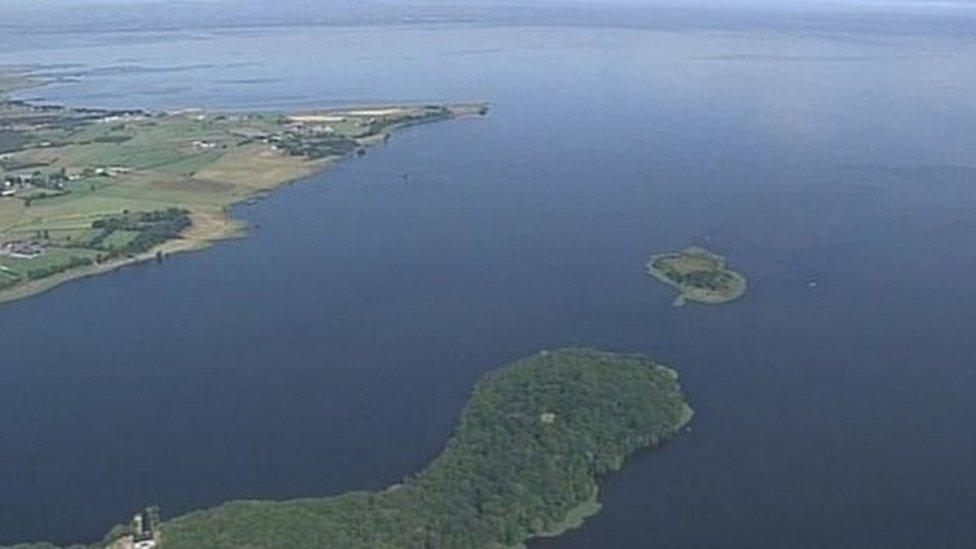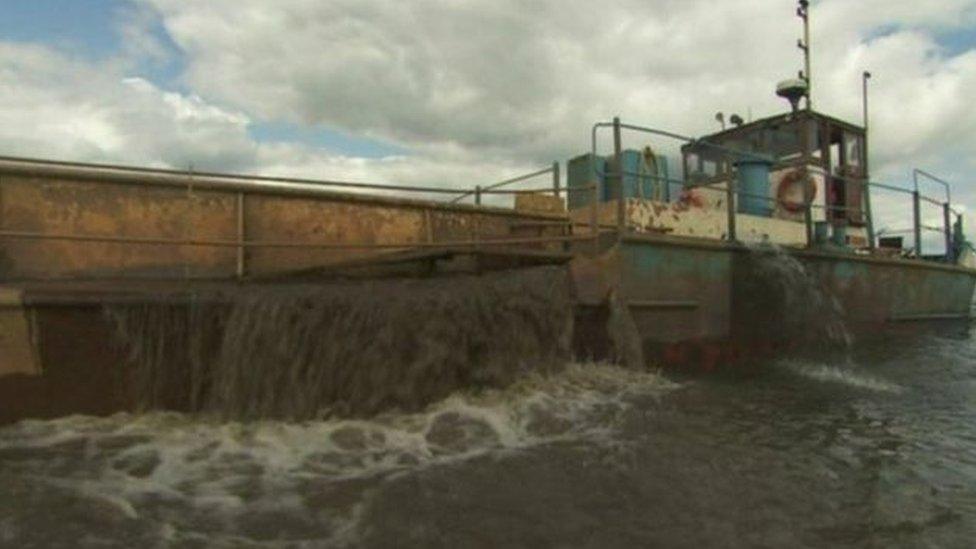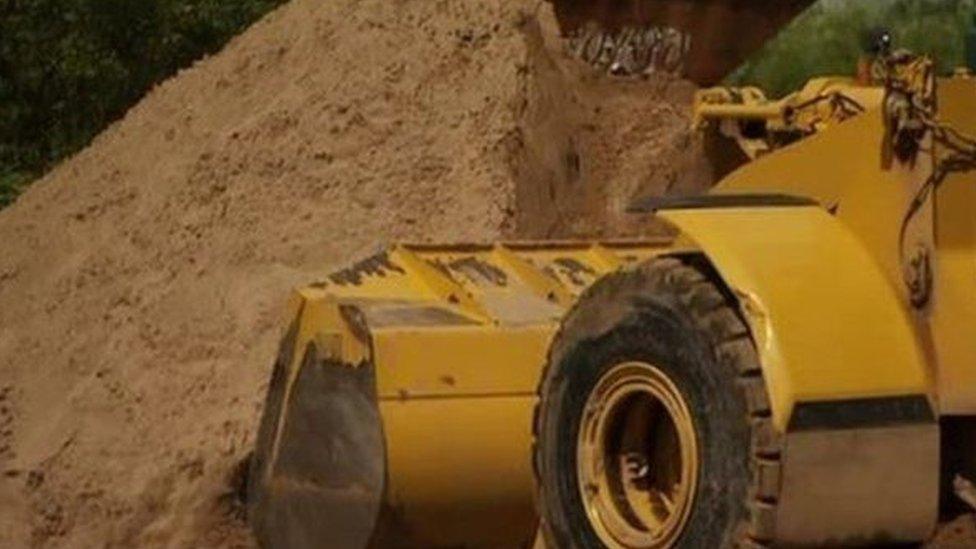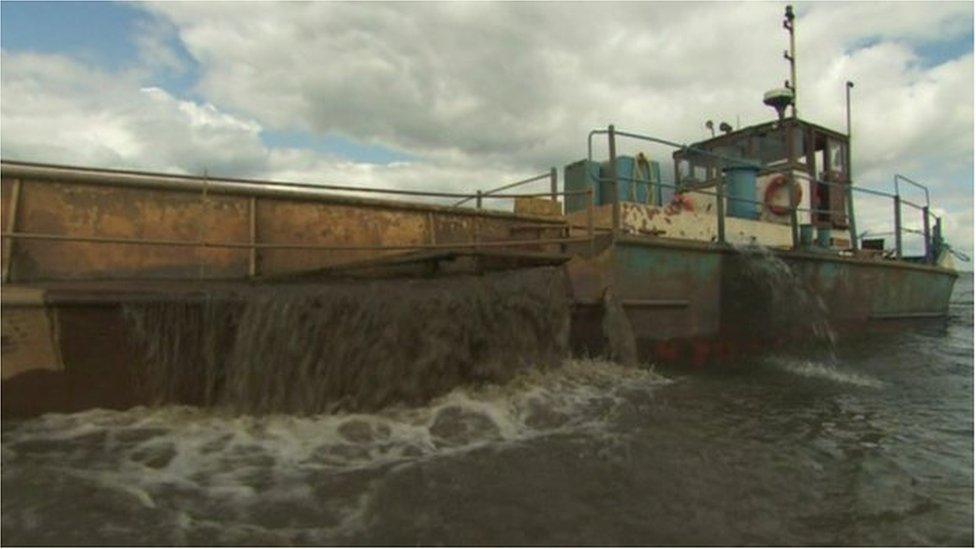Public inquiry over Lough Neagh sand dredging plan
- Published

Lough Neagh is an internationally important bird sanctuary with EU protection
A public inquiry is to be held over a planning application to extract sand from Lough Neagh.
Sand has been dredged from the bottom of the lough for many years without permission.
Environmentalists have challenged the unauthorised extraction saying it is impacting on an internationally important and protected wildlife site.
The sand companies had put in a planning application to cover their work over the next 15 years.
The Planning Appeals Commission has now been asked to run a public inquiry where all the details can be aired.
The decision to move to the inquiry was taken at a meeting last week when a planning report was presented to officials in the Department for Infrastructure.
When the public inquiry reports, the department must consider its findings before issuing a final decision.
It has responsibility for all "regionally significant" planning applications.
The application seeks permission by five companies for the extraction of sand from a defined area in the north-west corner of the lough for 15 years.
They propose to remove 1.5m tonnes of sand a year from the lough which is an important bird sanctuary with international protections.

According to the planning report, the Northern Ireland Environment Agency says it has no concerns about the impact of dredging subject to certain conditions
The two areas proposed for extraction amount to 3.1km sq.
The lough has a surface area of 383km sq.
'Ecological importance'
Lough Neagh and Lough Beg form what is called a Special Protection Area due to its population of resident and migratory birds.
According to the planning report, the Northern Ireland Environment Agency says it has no concerns about the impact of dredging subject to certain conditions.

The sand is used to supply the construction industry
One of their conditions is that the activity is limited to the extraction area proposed.
But the RSPB has raised some issues about some of the survey work done as part of the environmental statement.
The department said it had decided to move to a public inquiry because of a presumption against minerals extraction in areas like the lough.
The "ecological importance" of Lough Neagh and its European, national and local protections was another factor, it said.
It said the long history of unauthorised extraction was another reason it had decided to go down the inquiry route.
It said it was also taking into consideration the economic impacts of the sand industry and commercial fishing industry on the lough, and the wider impacts on the Northern Ireland construction industry which uses much of the sand.
Separate enforcement proceedings against the sand traders in respect of previous extraction will now also be dealt with at the public inquiry.
- Published22 November 2017
